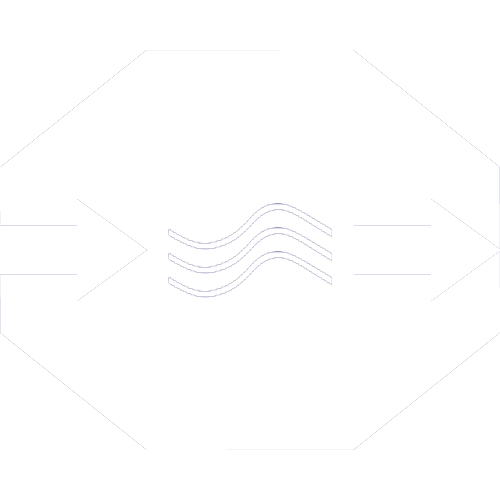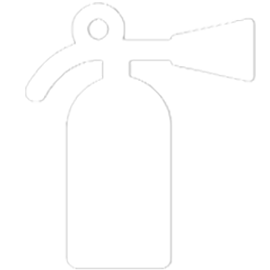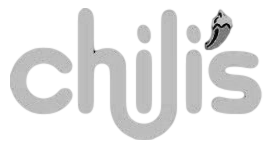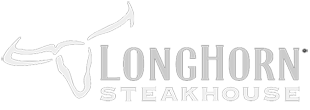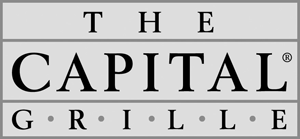The Importance of Kitchen Hood Cleaning in Hospitals & Medical Facilities
In healthcare facilities, where patient safety and operational efficiency tend to be core and foundational priorities, one element that may be overlooked is the importance of hood cleaning and maintenance in hospital kitchens. While hospital kitchens are responsible for providing nutritious meals to patients, staff, and visitors, their operations have the potential of posing significant risks to the entire facility if not managed properly. This is particularly true when it comes to the kitchen hood maintenance.
Commercial kitchen hoods, which are designed to remove grease, smoke, and odors, do not only play a critically important role in maintaining air quality, they are perhaps most importantly linked to reducing fire hazards. For those responsible for overseeing medical facilities, understanding the importance of regular kitchen hood cleaning in hospitals and medical facilities is essential. It’s a matter of ensuring ensure compliance with health and safety regulations, preventing potentially costly and dangerous incidents that could endanger the health of both patients and staff.
How Commercial Hoods Impact Hospital Kitchens
As a foundational component of a hospital’s HVAC system, commercial kitchen hoods work by collecting and filtering grease, smoke, steam, and other particles that are created during the cooking process. In healthcare facilities, where air quality is strictly regulated, kitchen hoods that do their jobs efficiently and properly is vital.
According to the National Fire Protection Association (NFPA), grease accumulation is the leading cause of commercial kitchen fires throughout the country, ultimately being responsible for 61% of incidents. In a hospital setting, the consequences of these types of events could be catastrophic. In addition to the damage to property, kitchen fires could potentially lead to evacuation scenarios that compromise patient care. But it’s not just the danger of kitchen fires; poor air quality that often is the result of poorly maintained kitchen hoods can create or worsen respiratory conditions in the most vulnerable patients.
Risks of Neglecting Hood Maintenance
The neglect of commercial kitchen hood cleaning in hospitals can lead to a cascade of risks, each with potentially severe implications for a medical facility.
Fire Hazards Caused by Improper Kitchen Hood Cleaning in Hospitals
The key fire hazard in hospital kitchens is grease buildup. As a result, the NFPA requires that kitchen hoods be cleaned routinely, and at intervals that align with the type of cooking being done, and the volume, within each kitchen. This typically ranges from monthly to semi-annually. Failure to adhere to NFPA guidelines can result in grease vapors spontaneously igniting, which can cause a rapid spread through the hospital’s ventilation system.
Health and Safety Risks
A study published by the International Journal of Environmental Research and Public Health found that poorly maintained kitchen exhaust systems can lead to elevated levels of particulate matter and other pollutants, contributing to a decline in indoor air quality. In a hospital, where patients often have compromised immune systems, exposure to such pollutants can lead to infections, respiratory complications, and extended recovery times.
Legal and Compliance Issues
Beyond the NFPA focus on fire safety across all commercial kitchens, healthcare facilities are subject to even more rigorous standards and regulations regarding fire safety and air quality. The Joint Commission, which is responsible for accrediting and certifying over 22,000 healthcare organizations and programs in the United States, includes kitchen hood maintenance as part of its critical Environment of Care standards. Non-compliance with the Joint Commission standards results in severe penalties. These include fines, loss of accreditation, and the potential for significant legal liabilities. In this way, proper kitchen hood cleaning in hospitals moves beyond the importance of operational efficiency; it is literally a legal obligation.
Best Practices for Hood Cleaning and Maintenance
Implementing a robust and routine maintenance plan is crucial for mitigating the risks associated with commercial kitchen hoods in hospitals and medical facilities.
Scheduled Maintenance Plans
A proactive approach involves setting up a scheduled maintenance plan tailored to the specific needs of the facility. The NFPA recommends that healthcare facilities develop a maintenance schedule based on the type and frequency of cooking operations . Regular inspections and cleanings should be documented to ensure compliance and to identify potential issues before they escalate.
 Hiring Professional Services
Hiring Professional Services
Given the complexity of kitchen hood systems, hiring certified commercial kitchen hood cleaning professionals is required by law. These experts are trained to clean and inspect the entire exhaust system, including areas that are difficult to reach. According to the International Kitchen Exhaust Cleaning Association (IKECA), professional cleaning services can significantly reduce the risk of fire and improve air quality.
Training for Kitchen Staff
In addition to professional kitchen hood cleaning services, kitchen staff should be trained to perform basic maintenance tasks. This includes daily wipe-downs of exposed areas, checking for grease buildup, and ensuring that filters are regularly cleaned or replaced. Training programs should be part of the facility’s overall safety protocol, ensuring that all staff members understand their role in maintaining a safe kitchen environment.
Long-Term Benefits of Proper Maintenance
Enhanced Safety
Regular kitchen hood maintenance directly correlates with enhanced safety. By preventing grease buildup, the risk of fire is significantly reduced, and the spread of airborne contaminants is minimized. This not only protects the physical infrastructure of the hospital but also ensures the safety and well-being of patients, staff, and visitors.
Cost Savings
Preventive maintenance is also a cost-effective strategy. A study by the American Society for Healthcare Engineering (ASHE) found that regular maintenance of HVAC systems, including kitchen hoods, can reduce energy consumption by up to 15%. What’s more, it can extend the lifespan of equipment, which can ultimately save even more financial resources in the long run. When taking into consideration the additional benefit of avoiding the potential costs associated with fire damage, legal penalties, and healthcare-associated infections (HAIs), regular kitchen hood cleaning in hospitals is a sound financial investment.
Improved Operational Efficiency
A well-maintained kitchen hood system contributes to the overall efficiency of hospital operations. Clean hoods improve ventilation, leading to better temperature control and reduced strain on HVAC systems. This not only creates a more comfortable environment for kitchen staff but also supports the smooth operation of the facility as a whole.
Wrapping Up
Proper kitchen hood cleaning in hospitals and medical facilities is a critical responsibility that directly impacts safety, compliance, and operational efficiency. For executives overseeing these facilities, prioritizing these activities is essential to limiting the associated risks and ensuring that every healthcare environment remains safe and compliant.
By implementing best practices, including scheduled maintenance plans, professional cleaning services, and staff training, medical facilities can protect their patients, staff, and infrastructure from the potentially devastating consequences of neglect.
A NOTE FROM DONE RIGHT: Senior executives should conduct a thorough review of their facility’s kitchen hood maintenance practices and consult with certified professionals to develop a comprehensive maintenance plan that ensures compliance with all relevant regulations and standards. Done Right Hood & Fire Safety stands ready to support all medical facilities in NYC, New Jersey and South Florida.



 Hiring Professional Services
Hiring Professional Services



